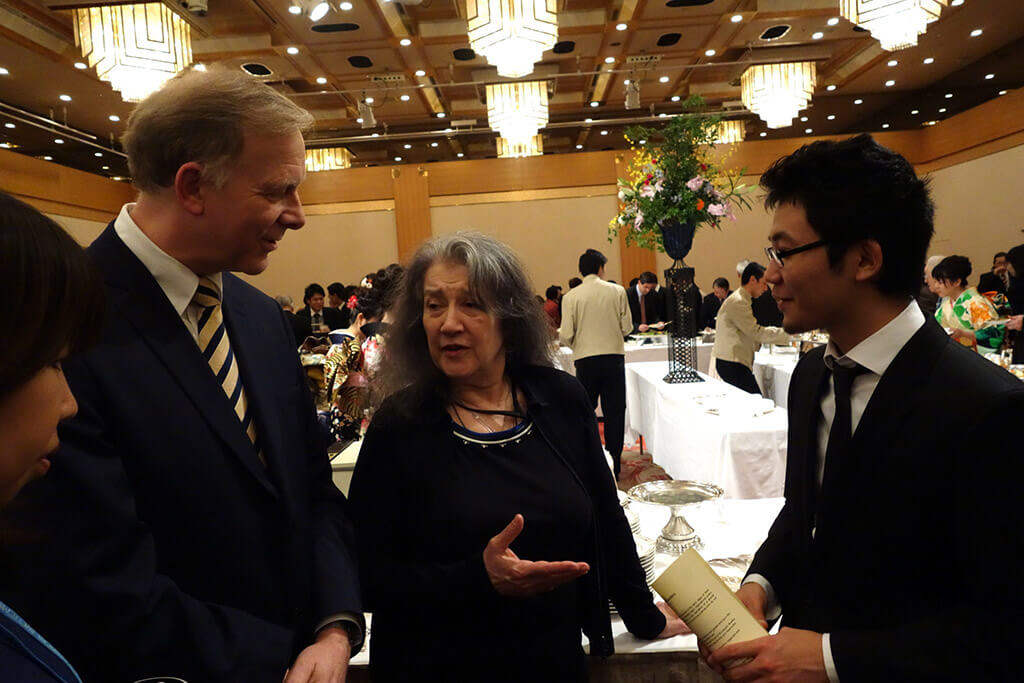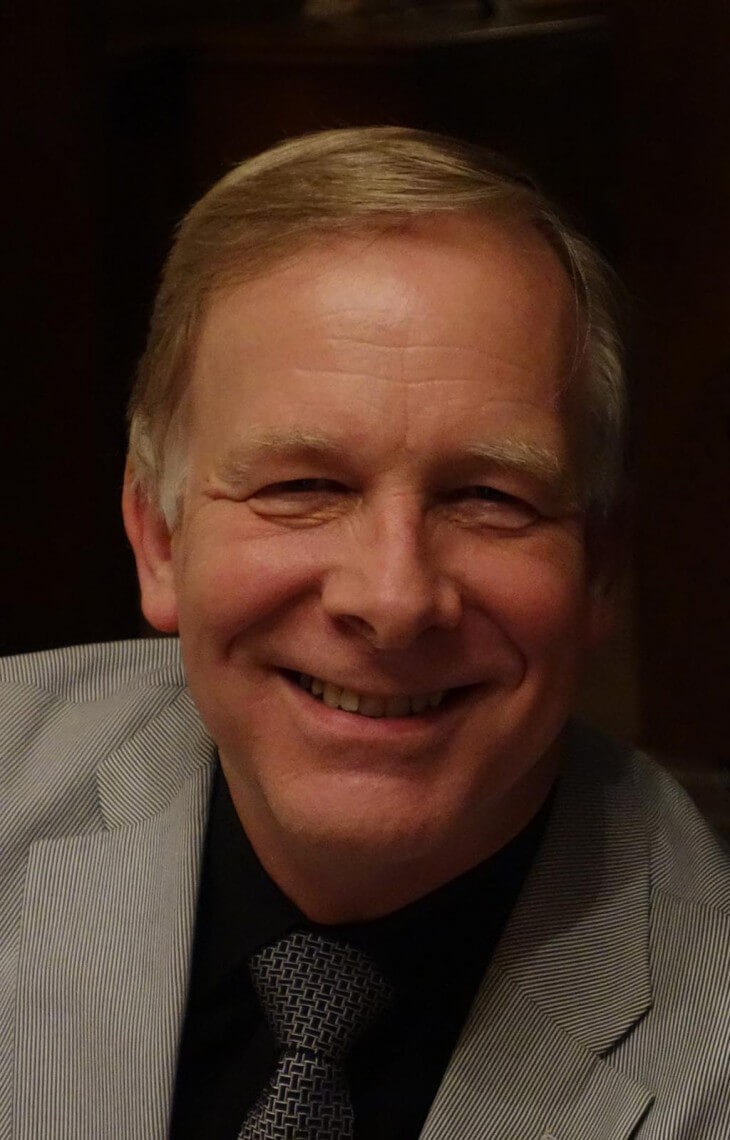
MONTREAL – From May 11 to 14, Montreal played host to the 61st General Assembly of the World Federation of International Music Competitions (WFIMC), the primary governing body of the world’s foremost music competitions.
Over the course of the summit meeting, six new competitions were inducted into the WFIMC; in addition, four new associate performance organizations gained membership status: Alink-Argerich Foundation, Verbier Festival, Young Classical Artists (UK), and Young Concert Artists (USA). The WFIMC also welcomed the membership of its newest member competition, the Canadian International Organ Competition, which begins in October in Montreal.
Delegates from all continents (except Antarctica) convened at the Assembly to discuss topics of interest and of concern to music competitions, in the context of meeting the challenges surrounding a shifting media landscape. Québécois film director François Girard is a self-declared failed musician and closet pianist; his credits include 32 Short Films About Glenn Gould and The Red Violin.

Girard posed a question drawn from his collaborations with eminent artists such as Joshua Bell and Yo-Yo Ma: “How do you perform at a high level and be engaged in a secondary artistic discipline, and be the artist that interacts with other art forms and the world?” In an era where national broadcast corporations are backing down from their cultural mandates, Girard affirms that “we are all in this soup where we try to be seen and heard, and we try to make the best out of the circumstances for the public good.” But the landscape isn’t all that dystopian: “I’m not pessimistic, the death of cinema has been announced a million times… But the means of telling a story is like playing music; it’ll always exist.”
Here at the Assembly, Medici.tv took the stage to announce a new Montreal-based competition broadcast platform, for the exclusive online hosting of the Federation membership’s competition events. Montreal is considered by Medici.tv to house a winning combination of skilled web developers and a population that takes an active interest in music. Executive chairman Didier Bensa also highlighted how webcasts would also help foster an environment for music education, noting that “in Europe, it [music education] has been slightly forgotten.”

Other panel members weighed in on the power held by competitions to educate the next generation of music followers. Denis Brott, artistic director of the Montreal Chamber Music Festival, advocated for the role of competitions in forming a young musician’s identity: “Competitions are a part of the discovery that you offer a rising star, if you will — the discovery of themselves, of testing themselves in the most arduous of situations.”
Laurence Vittes, contributing music critic to Gramophone and Huffington Post, addressed the competition representatives directly when he stressed that they must extend an open hand to up-and-coming music journalists: “Do we say ‘how do we know whether they can write about our festival?’ Or we can embrace it and try to bring them into our sphere and help them become critics, help them learn what we do? […] Educational activities are an increasing part of what you do in your competitions, and you’re the perfect delivery system to give outreach activities and [show] how to write about music.”
Xenia Hanusiak, music writer and WFIMC Regional Executive for the Americas and Asia, echoed this sentiment on behalf of both fields of her work: “As competition heads, I think we need to be very savvy and very quick on our feet about the how the cycle is changing and how it’s being reported,” adding that equipping the next generation would be in the spirit of “empowering young writers and not seeing music criticism as something old-worldly.”

Also at the Assembly, Gustav A. Alink cast a watchful eye over the WFIMC delegates, many of whom are also members of the Alink-Argerich Foundation (AAF). A resource centre for international piano competitions, its director Gustav A. Alink had co-founded AAF with none other than Martha Argerich, a “very good, close friend” of his whom he met while working as a photographer for record sleeves over 35 years ago. Even back then, Alink had been aware of the need for oversight of competitions – “you could see how many times people make mistakes in what they write about themselves – people saying that they were prizewinners there and there, which wasn’t true.” Embarking on a mission to collect data from various piano competitions, he published a definitive three-set encyclopedia in 1990 detailing a century of piano competitions: their results, participants, and jury members. As the database continued to balloon, Alink recognized the need for an umbrella organization for the competitions and approached his good friend: “I talked with Martha about this, and I thought, ‘OK, we’ll make it a foundation.’ […] I made different statutes of the Foundation. I remember the day I went to Brussels, where she was residing, and I showed it to her. She was carefully reading, and even suggesting some adjustments.” With that, the Foundation was established on November 3, 1999; it currently has 178 organizations in its database.
The Montreal International Music Competition appears among the AAF’s listings, but Alink would like to see the return of Toronto to the international competition circuit: “When I look at piano, Canada does not have that many piano competitions. […] There SHOULD be a competition in Toronto, I think; it doesn’t really bite with Montreal if you plan it carefully. Of course, you have to think of some focus: what makes it special? You have already so many competitions that you must give it some special characteristic to get started.”
He already has an executive team in mind: “You have many great musicians: [Marc-André] Hamelin, and Angela Hewitt, André Laplante. […] they could cover the artistic part of it, and if they would also get involved themselves, it would attract enormously because they are big names and great people.” These three Canadian pianists remain active this summer; notably, Hamelin will serve on the Cliburn Competition jury this month, and all will perform at Canadian classical music festivals this summer. As it turns out, a competition is much more elaborate than a festival: “The whole preparation is different, of course. With a competition, you have to think of so many other things: it has to be fair, transparent — every step you make in the preparation is observed by many people and very critically […] on top of that, you have to deal with the jury and jury rules. […] With a festival, I don’t say it’s easier, but it’s different: you present concerts, you engage an artist, you have to control the repertoire [so that] it’s balanced.”
Fittingly for the high level of musical talent where we had gathered, Alink had encouraging words for current and future competitors: “For the musicians, it’s extremely important to not be affected by bad results. When the level is high, then it very much comes to a matter of taste. […] Of course, if they are good musicians they are also very sensitive. It’s one event, anything can happen; it doesn’t mean that the ones that are not prize winners do not deserve it. They all are at the same level; they all deserve a career. One person that is not successful here, may be the winner of the Cliburn.”
What better opportunity than at a competition — and an international assembly of competition executives at that — to raise talking points for classical music’s future. In the words of Denis Brott, “Music calls upon us to be servants to its high art, and that high art takes various forms: one is to do it yourself, the other is to encourage others to do it, and to set a bar for that.”
#LUDWIGVAN
Want more updates on Toronto-centric classical music news and reviews before anyone else finds out? Follow us on Facebook or Twitter for all the latest.
- LISZTS | 10 Reasons To Miss A Performance - April 24, 2019
- INTERVIEW | Nico Muhly: Opera’s Renaissance Man - November 8, 2018
- INTERVIEW | How An Iranian Musician Has Created A Revolution In Persian Classical Music - October 7, 2018
- LISZTS | 10 Reasons To Miss A Performance - April 24, 2019
- INTERVIEW | Nico Muhly: Opera’s Renaissance Man - November 8, 2018
- INTERVIEW | How An Iranian Musician Has Created A Revolution In Persian Classical Music - October 7, 2018



